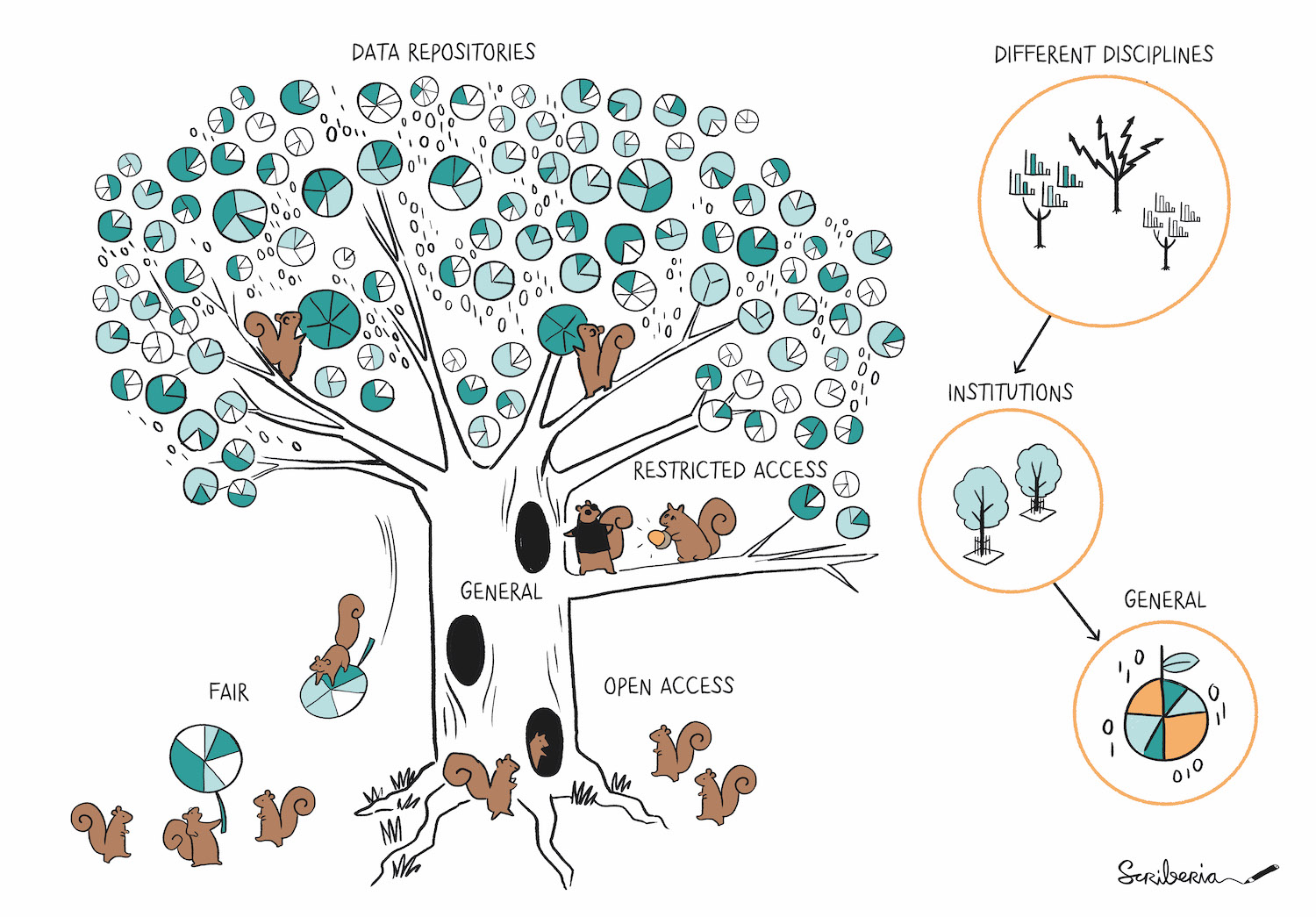Publishing data
Data repositories are online locations for storing research data long term. When data is published in a repository, it is (often) assigned a persistent digital object identifier (DOI), which ensures that the data is discoverable and accessible over time. When published, the data should be accompanied by an appropriate license and metadata describing your data.
4TU.ResearchData
Choosing a repository for publishing your data depends on factors such as storage costs, funding or publication requirements, and security needs. TU Delft provides an in-house data repository, 4TU.ResearchData, supporting versioning and a GitHub remote as part of their services. Additionally, when publishing your data, your submission is reviewed to ensure that repository requirements are met. You will receive a DOI for your dataset, which can be used to cite your data in publications. All data is stored in the Netherlands, with two locations in Delft and a backup in Leiden.
Zenodo
Developed by CERN, Zenodo is an open repository that allows researchers to upload and share their research outputs, including datasets, publications, and software. Similarly to 4TU.ResearchData you will receive a DOI for your dataset. Zenodo supports versioning and has GitHub integration.

Regardless of the repository you choose, it is important to ensure that your data is properly documented. This includes describing the content, structure, and context of your data, as well as any relevant documentation that is needed to understand and use the data.
 Research Software
Research Software Data Management
Data Management Computing Infrastructure
Computing Infrastructure Catalogue
Catalogue